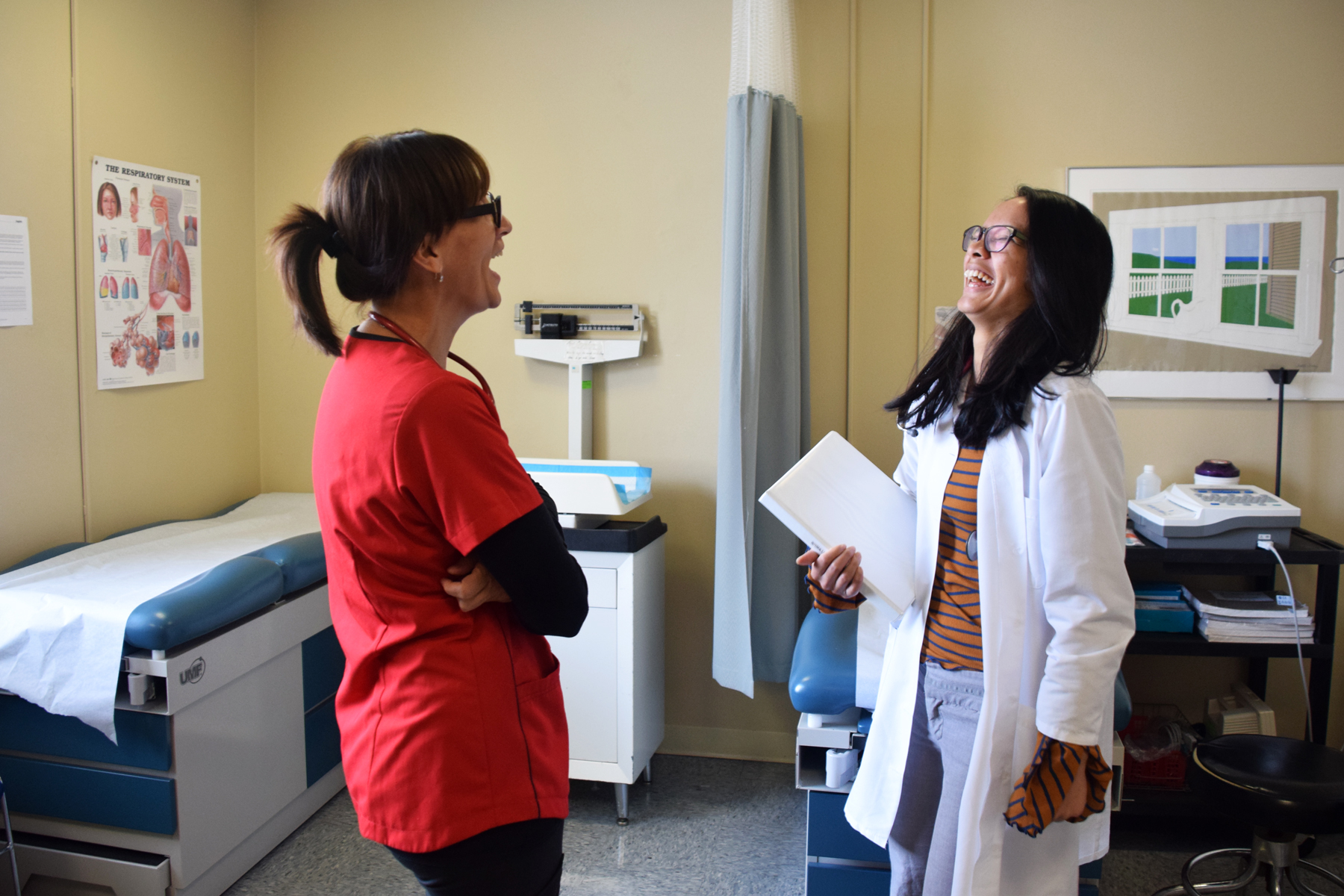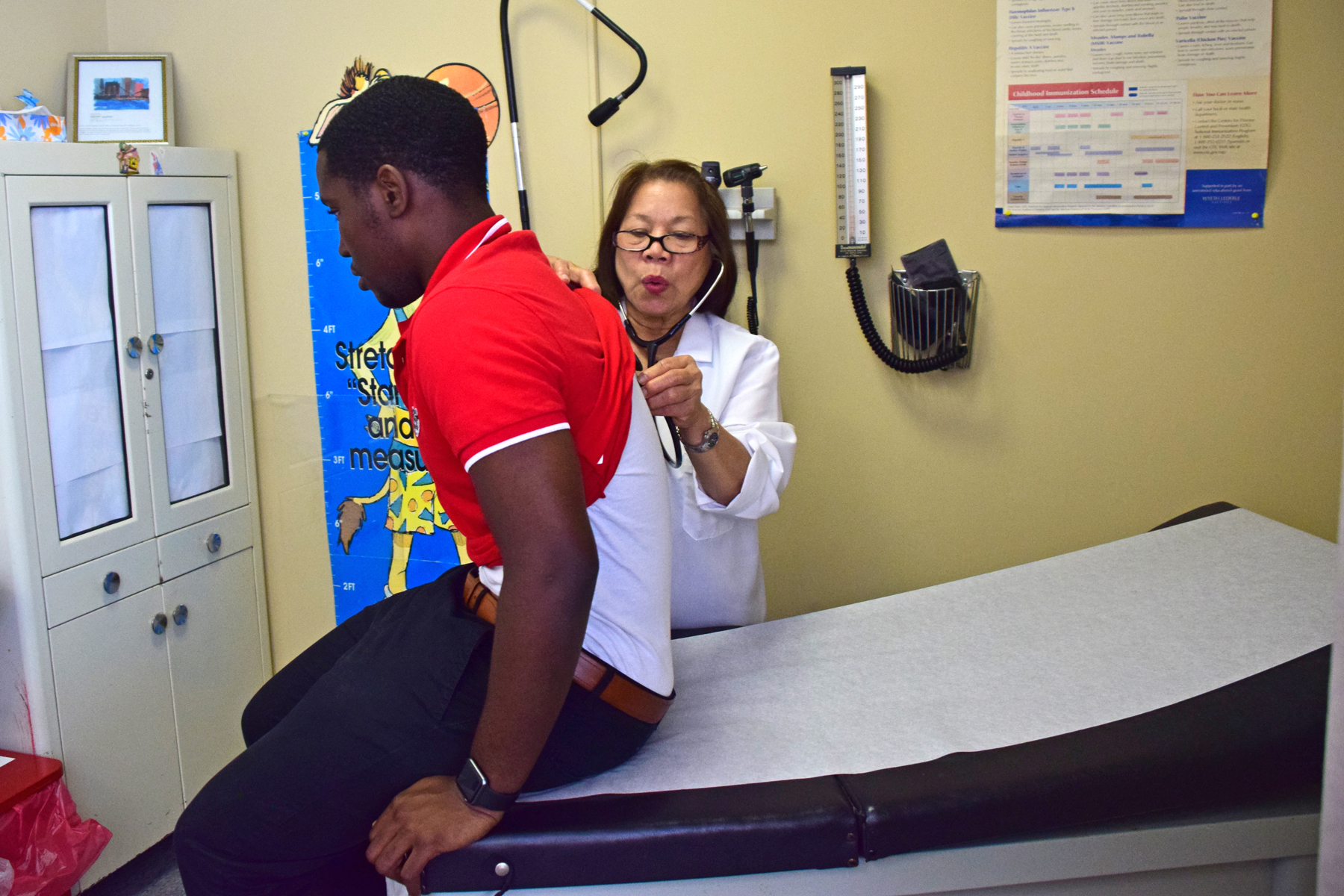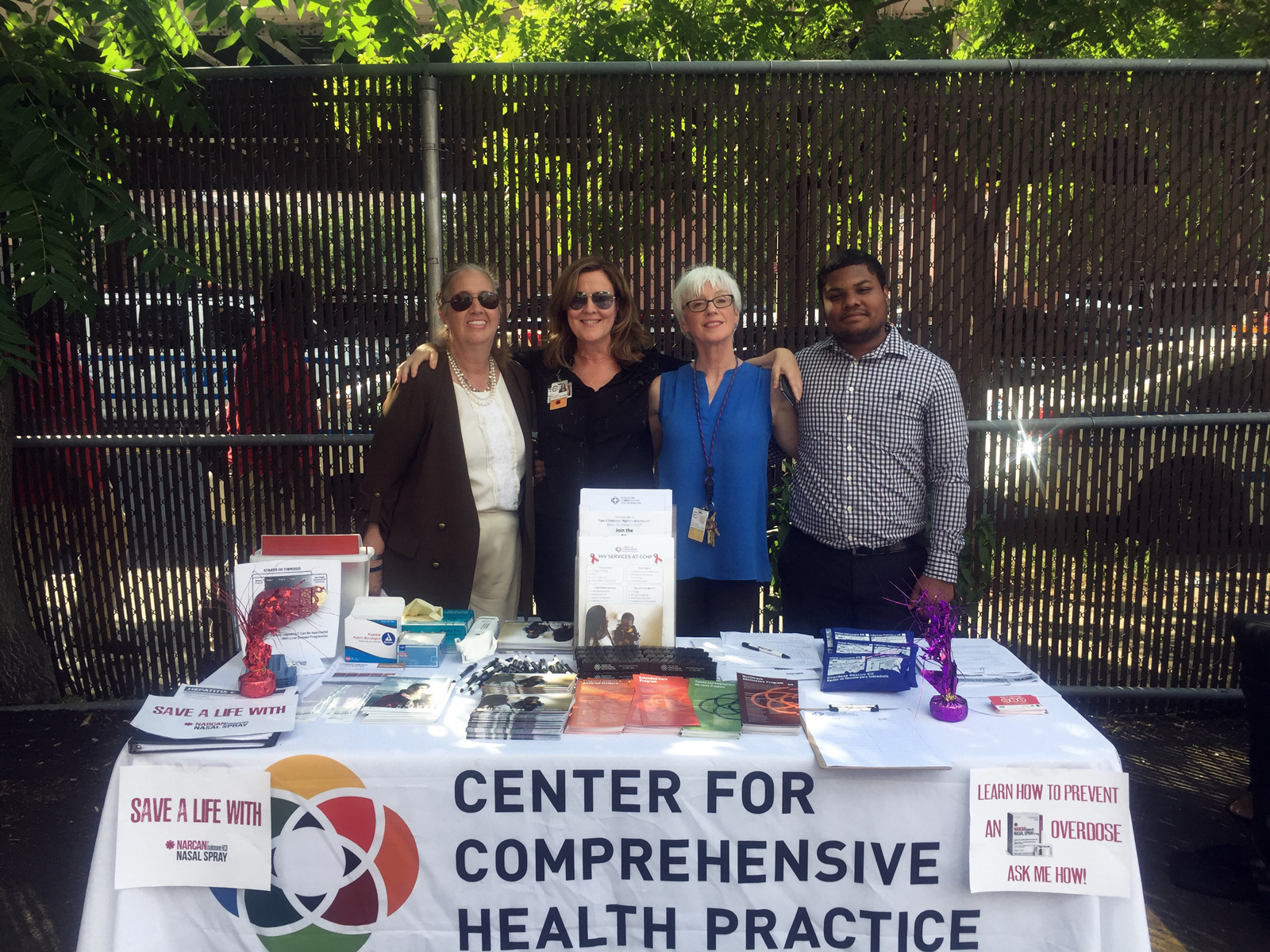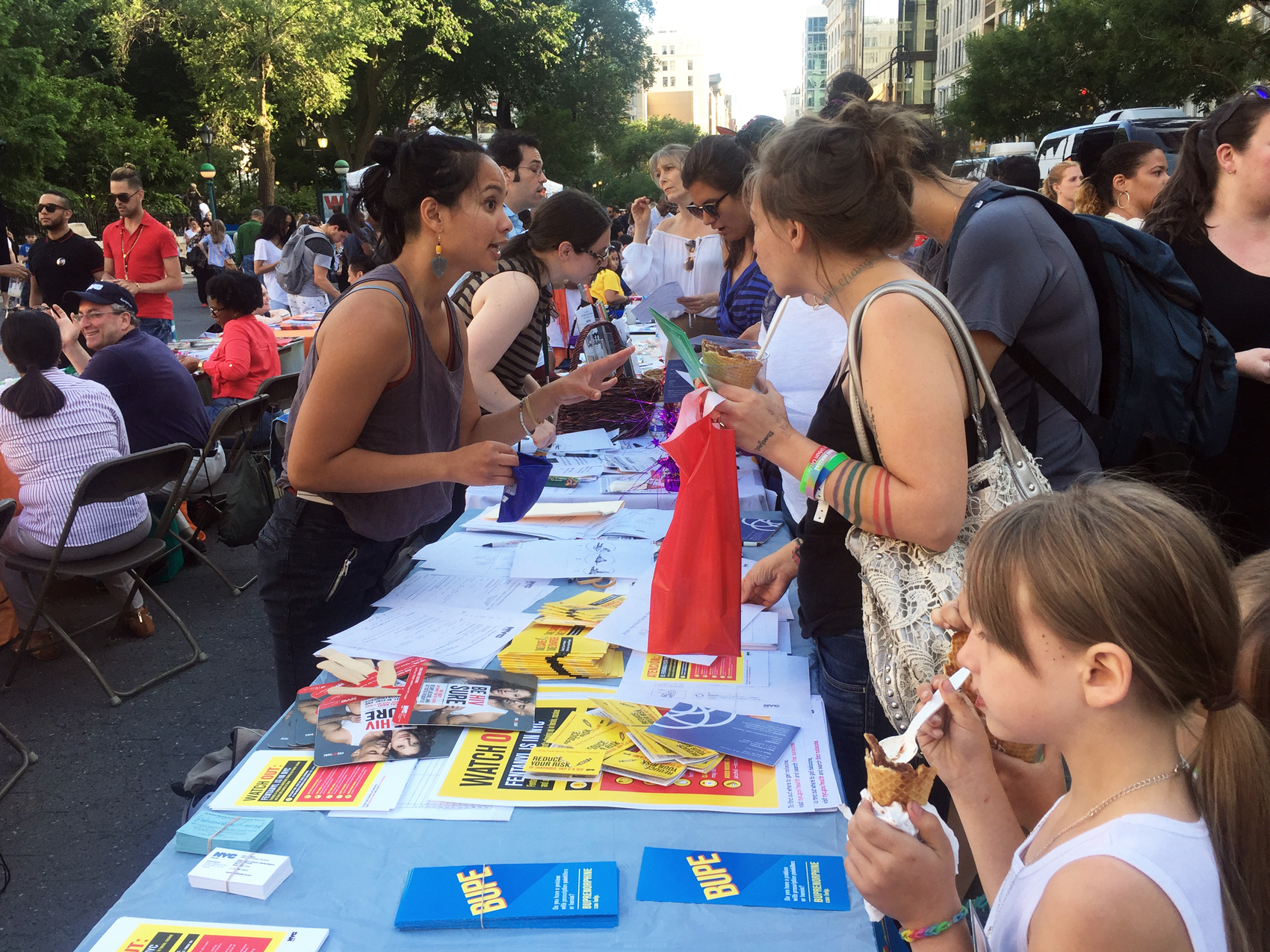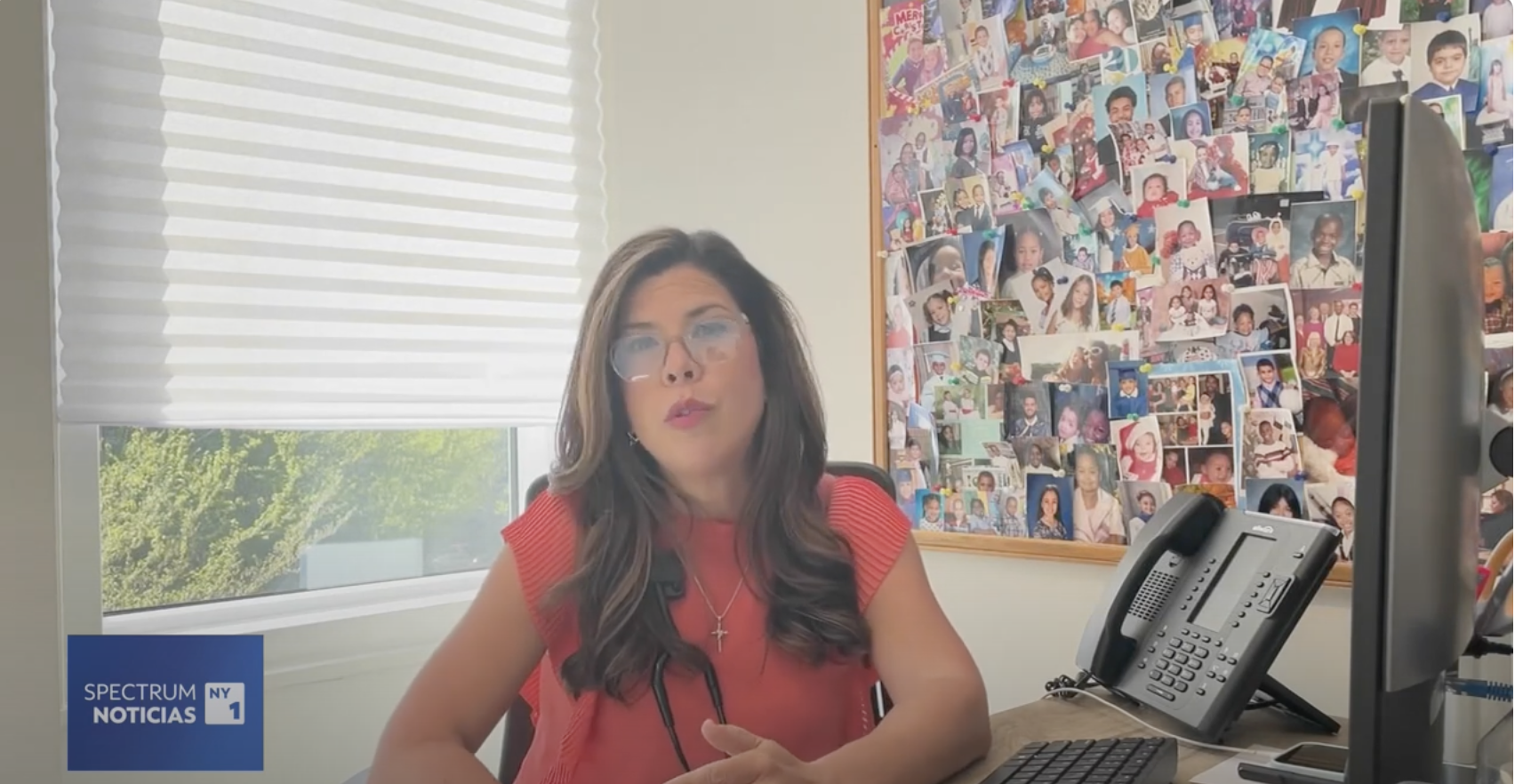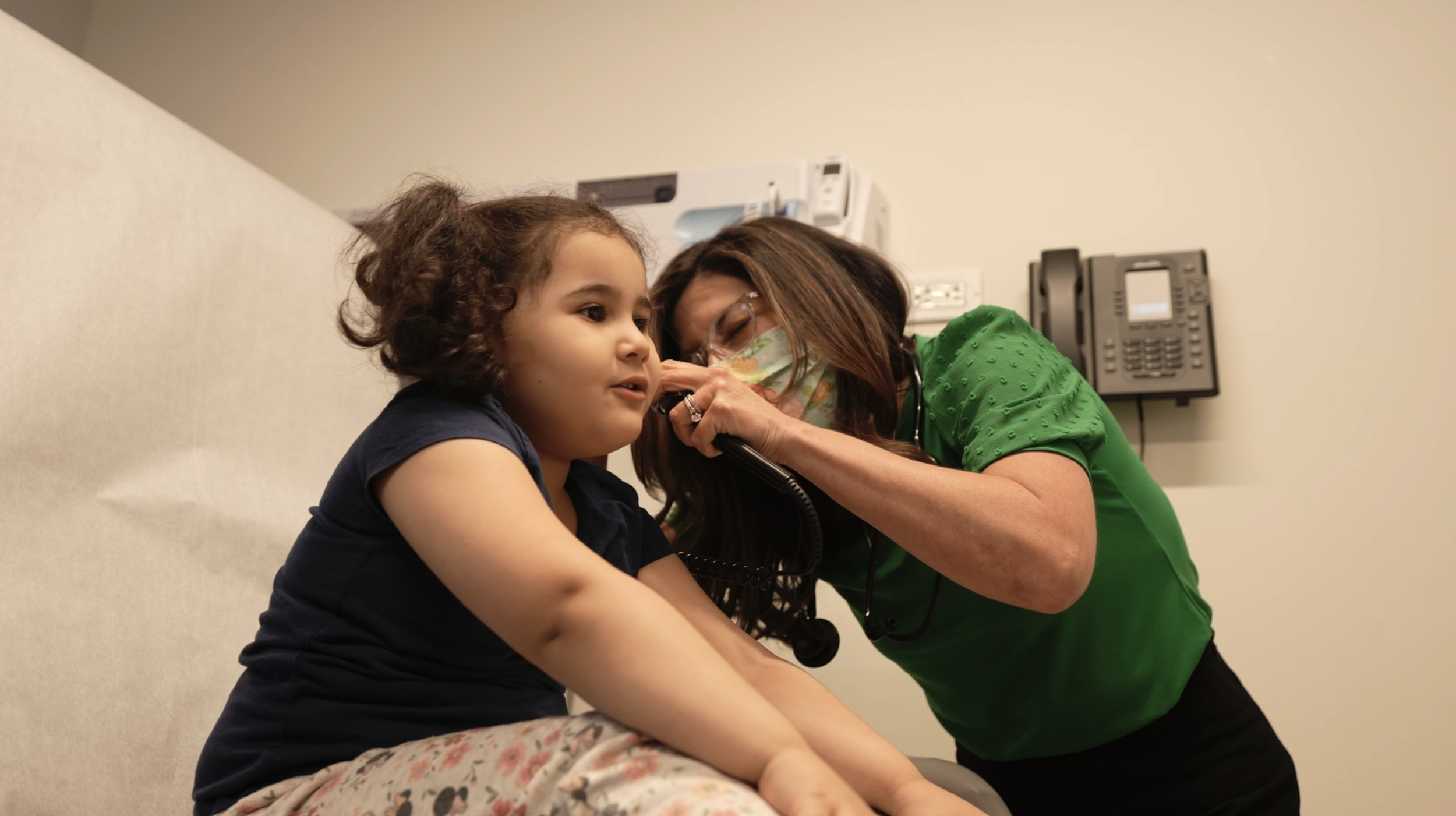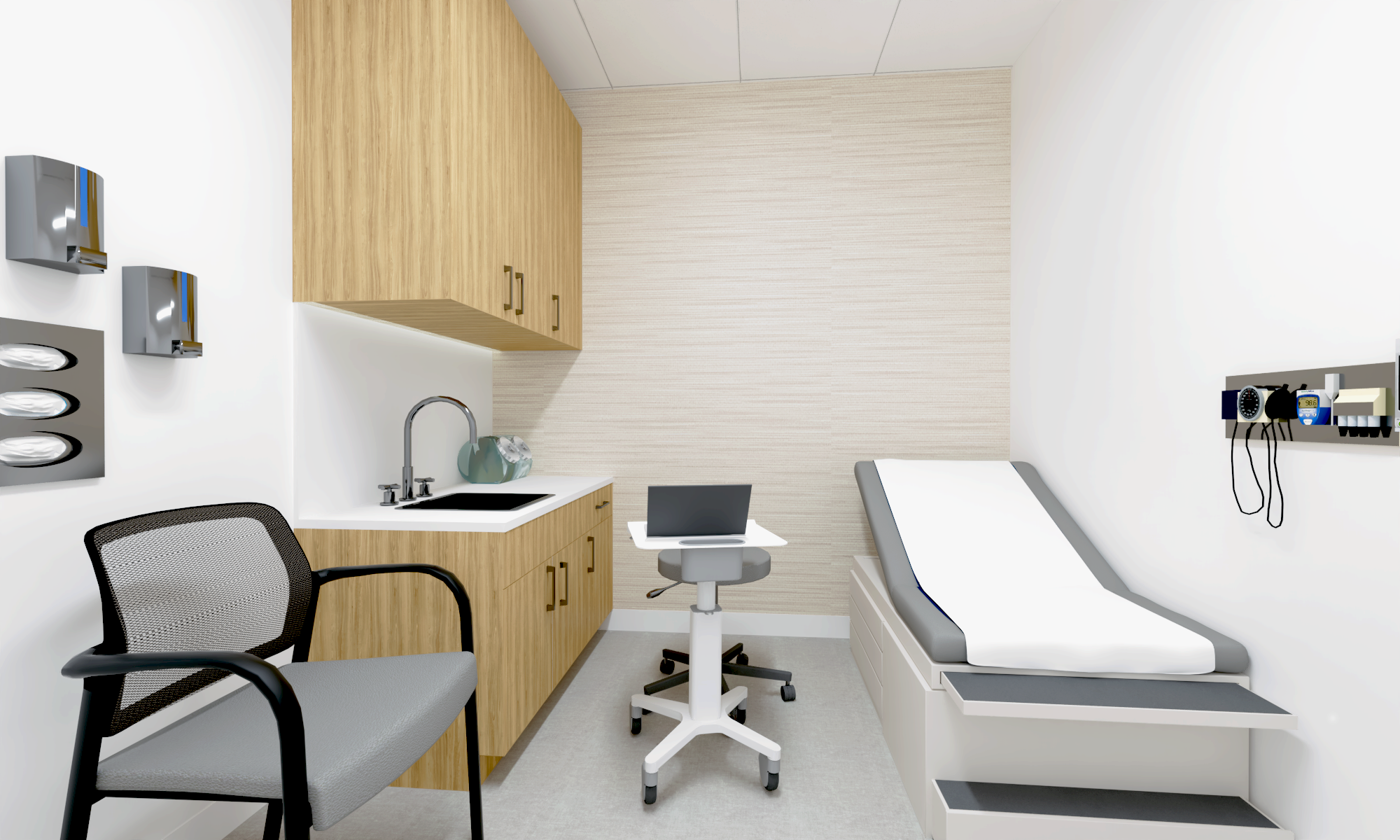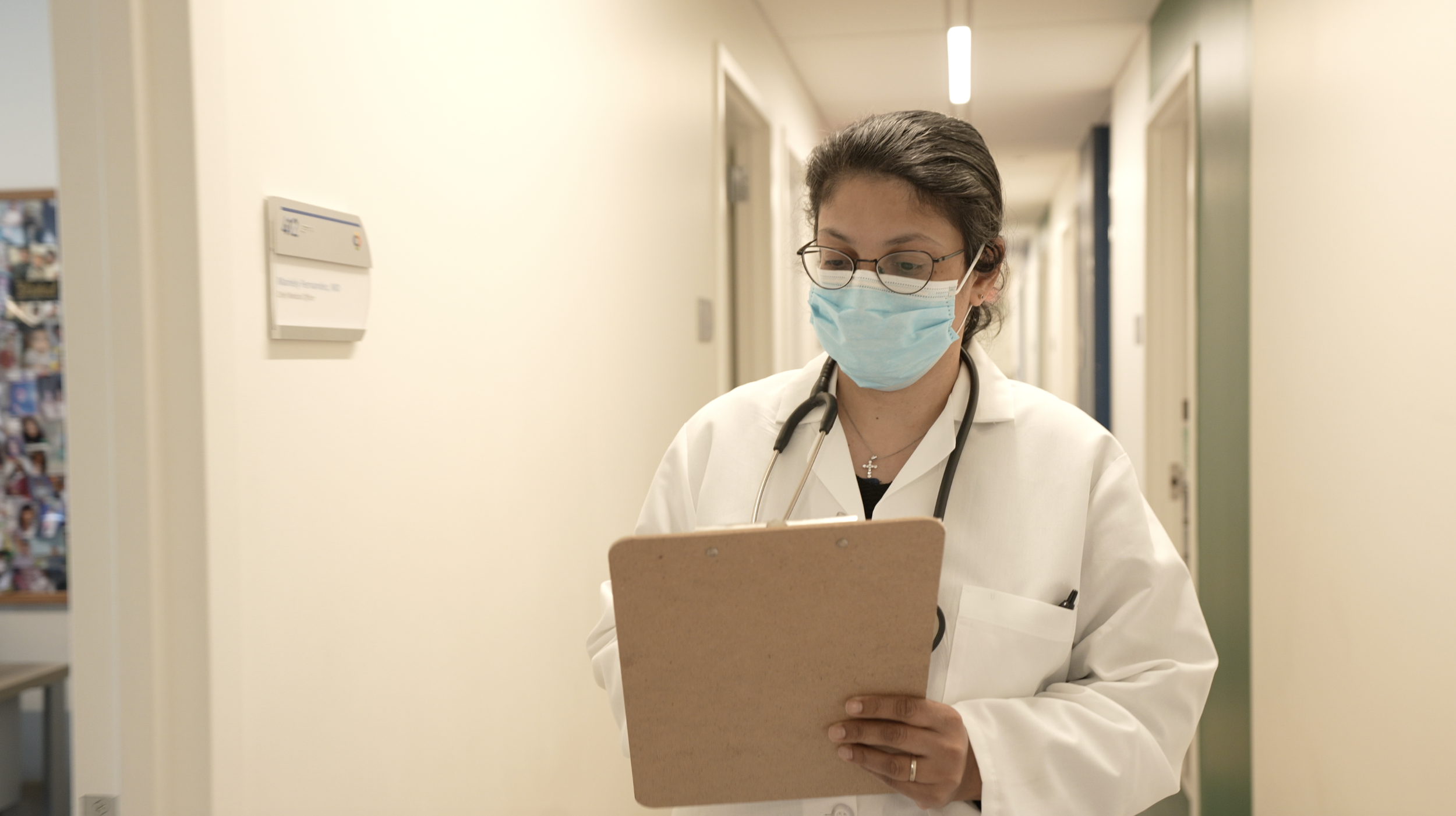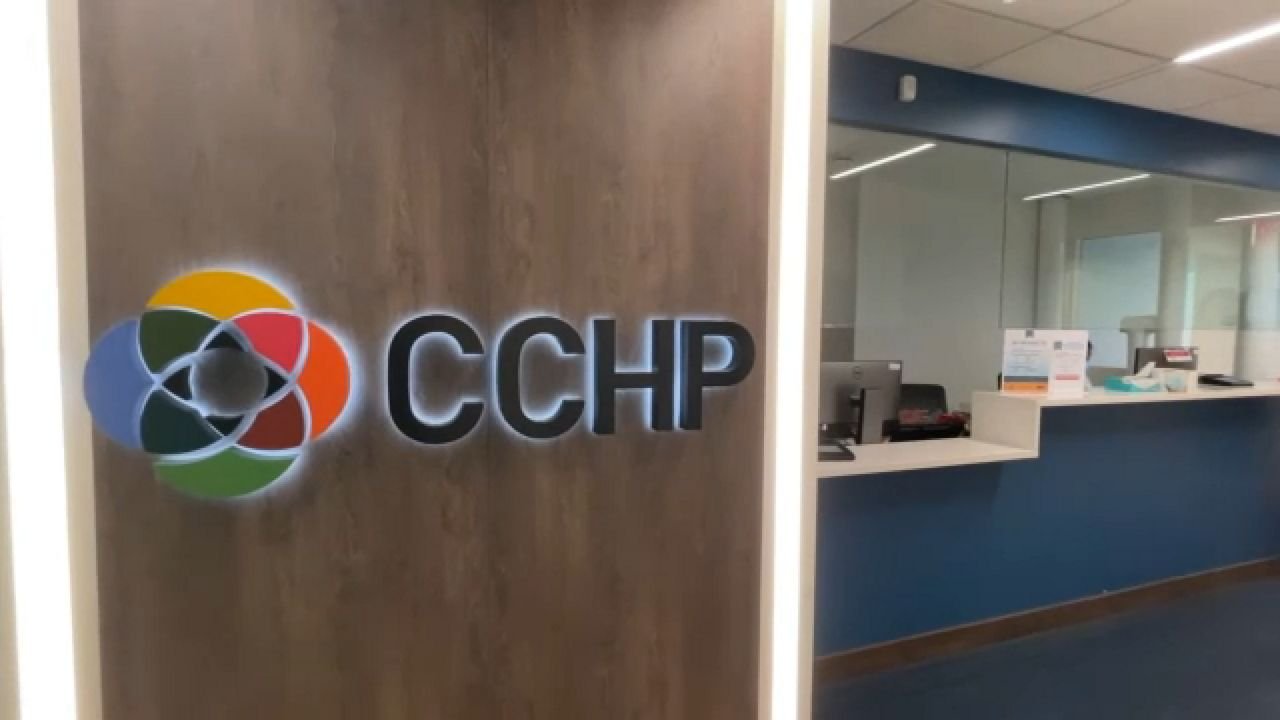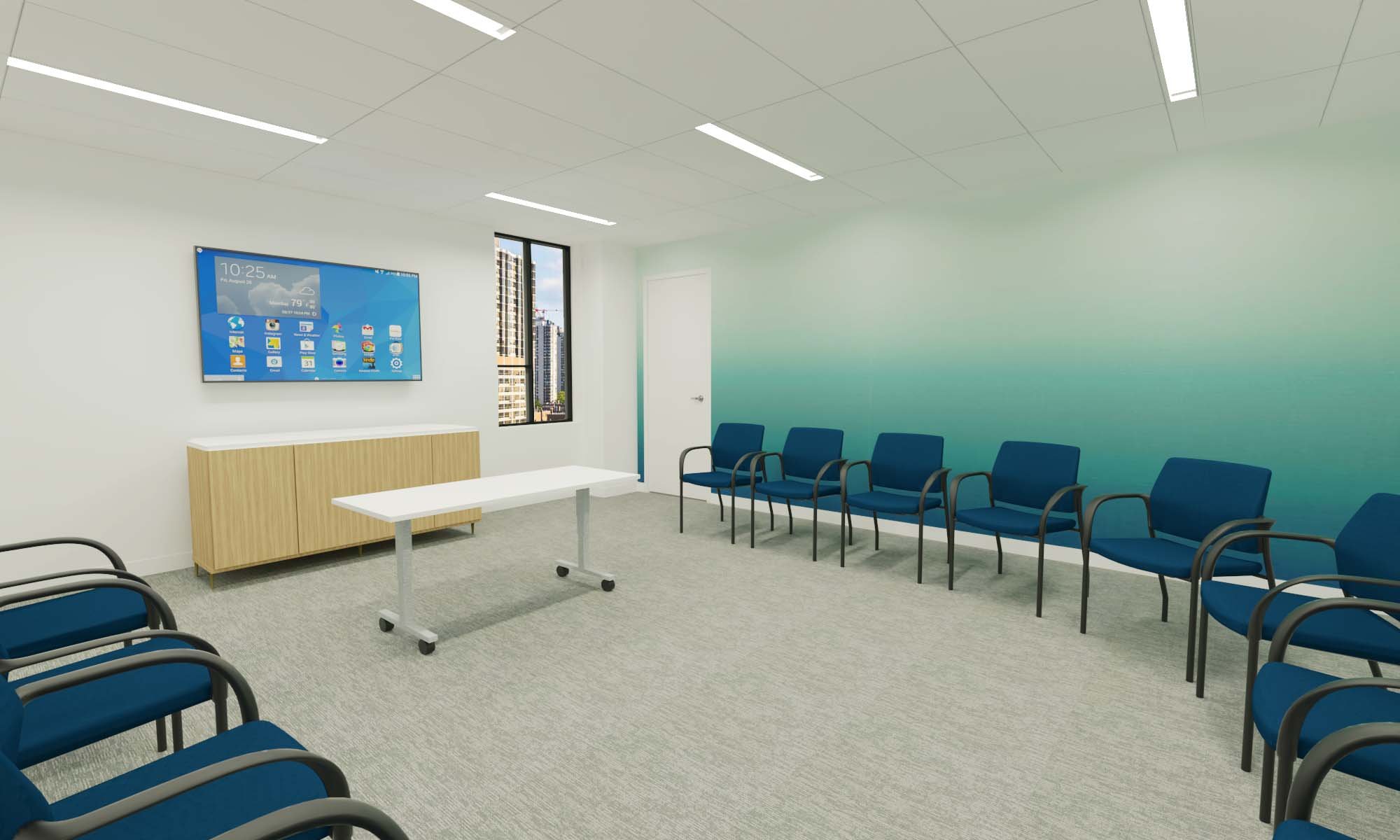The center for comprehensive health practice
More Than Half a Century of Serving the Underserved
The vision
Dr. Richard Brotman
Like so many children of the Great Depression, Dr. Richard Brotman — the founder of the Center for Comprehensive Health Practice (CCHP) — realized at an early age that those without financial resources often struggle to find safe and effective medical care.
He grew up in a time and an environment where the value of giving back to the community was prevalent and instilled in him,” says his daughter, Dr. Deborah Brotman, who served as a physician and the Chief Medical Officer at CCHP.
East Harlem — A Community in Need
In the 1950’s, East Harlem was a community struggling with gang warfare, drug abuse, crime, poverty, and a lack of accessible and effective health care. Richard Brotman — who had been invited to accept an appointment at New York Medical College as clinical professor in the Psychiatry Department headed by noted psychiatrist Dr. Alfred Freedman — saw firsthand the needs of the community.
“He was always working in the community and seeing what was needed there,” says Deborah Brotman. “He had this very unique way of figuring out what people needed. I can remember him telling me stories about how he and his team visited people in their apartments, or went into parks, or into the projects to ask people what they felt was needed in the community.”
What Brotman, Freedman, and their team learned from that outreach was that there was a critical substance abuse crisis growing in the East Harlem community and that effective, accessible treatment options were largely unavailable. So in 1960, they created the program that would eventually become CCHP — the Division of Social and Community Mental Health program — with Brotman as Director and a home base at New York Medical College and an affiliation with Flower-Fifth Avenue Hospital.
The initial focus of the program was to deploy the relatively new “comprehensive healthcare” model to combat a surge of addiction and destruction caused by the abuse of opioids and other substances at that time.
Part of Dr. Brotman's vision was the recruitment of that team--a well-trained staff from diverse professional backgrounds. He saw this as essential to the development and implementation of his vision of community-based health care. The team included Dr. Victor Lief (Psychiatrist) and Dr. Nina Lief (Child Psychiatrist) who spearheaded the development of the Center's early childhood programs, as well as community organizers, registered nurses, social scientists, and staff from other disciplines that manifested itself into the model of integrated care that CCHP still embodies today.
Comprehensive Healthcare: Treating More Than Just the Symptoms
Although it’s widely employed now, the practice of comprehensive healthcare that focuses on the psychological, social, cultural, and familial causes of a medical condition was rare in 1960.
“You really have to appreciate how visionary these guys were,” says Deborah Brotman. “They did a great deal of clinical research…It started as a program for addiction treatment services and then expanded to primary care and then early childhood development. So all of those things came into play over the years. But the vision that social, emotional, and physical health variables were important to address in one place was very unconventional at that time.”
Brotman remembers dinner table conversations with her father about the power of wraparound services, integrative behavioral health interventions, and providing access to all.
“Now we all talk about comprehensive care and the social determinants of medicine,” she says. “But when I began my training, people would say, ‘Hey, what's this about?’ And I'd say, ‘Wow, I've been hearing this since I was a young kid because my father would talk about it all the time.’”
Overcoming a Stigma
But while the comprehensive care model may have been prescient, the initial engagement with the community amidst the stigma that surrounded substance use treatment was not easy for Richard Brotman and the ambitious team.
“The truth is that was a huge risk,” says Richard Brotman’s son, Andrew Brotman, M.D., who volunteered as an intake worker in the Center’s methadone detoxification program, now known as the Opioid Treatment program. “That meant the program had to fend for itself. But they were determined.”
Reflecting on the staff at CCHP, Dr. Brotman, now Executive Vice President and Vice Dean for Clinical Affairs and Strategy at NYU Langone Health, says, “You have to be mission-driven, and a risk taker. And you have to be a believer.”
David Hutson, a former social worker who served both as Chief Operating Officer and Chief Executive officer for CCHP over the course of 40 years, describes the challenging early days of the organization’s community engagement efforts.
“We used to go to community meetings initially when we were talking about establishing addiction treatment for opiates,” he explains. “And there were many times when we felt lucky to get out unscathed from some of those meetings because it was a very challenging subject at that time. But it's better now.”
Deborah Brotman adds, “They always went out into the community and decided with the community what the needs were. So with that sort of partnership, they were supporting the community, and the community was supporting them.”
While there may have been initial skepticism about the Center’s bold approach to treating those with substance use issues, the success of its comprehensive healthcare model and the effectiveness of its practice ultimately helped establish it as a welcome and necessary community service.
What started as a center for addiction treatment services later expanded into primary care, early childhood development care for pregnant mothers facing addiction, and fighting against HIV and AIDS.
On May 2, 2023, Community Board 11 Chair Xavier Santiago recognized CCHP’s years of service to the East Harlem community during the opening ceremony for the
Center’s new home at 35 East 110th Street.
“This year we started off the session asking ourselves three primary questions,” he said. “Have they been, are they being or will they be a good community partner and neighbor? CCHP unequivocally is a yes. We've seen that for 63 years.”
On behalf of Manhattan Borough President Mark Levine, Keisha Sutton-James echoed Santiago’s sentiment:
“This beautiful space reflects the integrity and dignity with which CCHP has been treating its patients, its community for decades,” she said. “So thank you for being at the forefront of the overdose crisis that has been hard hit, hitting hard in East Harlem. And thank you for the 63 years of service thus far. We look forward to another 63 years of service to East Harlem.”
Community Partnership
For six decades, CCHP has worked in close collaboration with the East Harlem community. CCHP staff continued to attend local community board meetings and worked closely with local churches and schools. The team also developed and sustained powerful partnerships at the cultural and governmental level including with organizations such as the New York City Department of Health and Office of Addiction Services and Supports (OASAS).
On behalf of OASAS Commissioner Dr. Chinazo Cunningham, NYS Opioid Treatment Authority (SOTA) & Bureau Director Lesley Puryear lauded CCHP’s years of community service during the opening of its new facility.
“I want to congratulate and thank CEO, Annie Mendelsohn, COO, Michelle Gadot, and all the staff at CCHP for the work that you've done across the last 60-plus years in this East Harlem community,” she said.
Puryear also detailed the benefits of a grant OASAS recently awarded to CCHP.
“This ensures that this new facility will enable individuals seeking treatment to have one-stop access to care,” she said. “It's just more than care. It's person-centered care. It's what they need. It's life-saving care — comprehensive services in a comfortable, supportive, and actually gorgeous environment.”
“Your Family’s Home for a Lifetime of Care”
Richard Brotman’s original vision for CCHP was that not only would it treat individuals in need of comprehensive healthcare, but it would provide care for whole families, and ultimately serve entire generations of families.
“He wanted to make sure that everything was in one place so that accessibility was easy, was affordable, and was generational,” explains Deborah Brotman. “For instance, when I was a physician there I would treat multiple generations and by the time I got to the third generation, I knew what that family was at risk for. And so you could really make inroads there because you could start in childhood. The fact that you were treating a family as a whole was very important.”
The tradition of treating generations of families lives on at CCHP today, and is embodied in the Center’s long-standing commitment to providing a playroom with supervised childcare to parents during their healthcare visits.
“We have always had a focus on the family, and that’s why we made the commitment to having the playroom,” explains Brotman, who adds that there was an assessment value to the playroom as well. “It was really interesting because it wasn't just a playroom,” she explains. “We would walk by there and we were able to see interactions, and we were able to see developmental problems in kids outside of the medical office.”
The Center’s current Chief Medical Officer, Dr. Mariely Fernandez joined the Center in 2007. She proudly displays a wall of photos above her desk that shows generations of families she’s served over the years.
“When I first heard about families coming here from all different boroughs I thought that couldn’t be possible,” she explains. “Now I understand why it’s true. We don’t just provide access to the highest quality healthcare available, we also treat our patients like we treat our own family. I think that’s why many of our patients tell us they call this place home and bring their children and grandchildren from all over the city.”
Changing the landscape of modern medicine
With their initial home in New York Medical College, Brotman and the other founding members of the CCHP realized that they had an opportunity to not only provide comprehensive health care for those in need but to teach future generations of medical practitioners the effectiveness of the comprehensive health model.
“That affiliation with New York Medical College set the tone and the framework that this would be not just a clinic and not just a school,” explains Hutson. “For many years, we taught students in the Center this idea of taking care of people from various backgrounds and various kinds of problems, all in a common setting. We tried to make an impact in the way medical education is provided to students that would include this attitudinal component, and many other schools have since picked that up.”
“We used to get eight or nine students at a time rotating at New York Medical College,” explains Deborah Brotman. “And that was our opportunity to really spread the word and start young and show people the importance of what comprehensive care was.”
Over the years, CCHP has opened its doors to students from Hunter College’s School of Nursing, Utica University's Graduate Nursing Program, and A.T. Still University School of Osteopathic Medicine.
Over the past two years, CCHP partnered with students in Cornell’s Executive MBA/MS in Healthcare Leadership dual degree working on their capstone project to research future expansion efforts, and Drexel University’s MHA Program researching telehealth practice issues in healthcare management.
In an era where medical transparency wasn’t the norm, Richard Brotman and other members of the CCHP team have published books with their findings on early childhood development, addiction in pregnancy, comprehensive community services for people facing alcoholism, and drug use among young people.
Brotman has presented his work for organizations such as the National Institutes of Health, the U.S. Department of Health, and the National Institute on Drug Abuse. His research was published in the Journal of Health Care for the Poor and Underserved, The Annals of the American Academy of Political and Social Science, and Community Mental Health Journal, among others.
“A new generation committed to “Access for All”
Today, the CCHP team remains committed to Dr. Richard Brotman’s vision of providing accessible community-based treatment that integrates primary health care with substance use and behavioral health services to those in need, regardless of their race, color, sex, national origin, disability, religion, age, sexual orientation, gender identity or ability to pay.
“Our board and staff are committed to making sure the East Harlem community has access to healthcare that is as good or better than the healthcare that is available anywhere else in the City of New York,” says CCHP Board President Barbara Paxton. “I live in East Harlem, and we believe our families don't deserve less, and our neighbors don’t deserve less. We're very grateful to the families that have trusted us with their care for more than 60 years, and we're going to keep taking care of them into the future. Our commitment to this community is unwavering.”
CCHP Chief Executive Officer Ann Mendelsohn says that CCHP’s commitment to making health care accessible to those in need is what first drew her to the Center, and it’s one of the main reasons she and the rest of the CCHP family have continued to serve East Harlem for decades.
“These values remain central to our mission,” she says. Mendelsohn first joined the Center more than 20 years ago. She has served as the organization’s Chief Operating Officer, Site Administrator, Clinical Supervisor, and as an intake coordinator and provider of group, family, and individual therapy for patients.
“Like so many of the incredible members of the CCHP team, I was drawn to healthcare to help those who are struggling to find care get the high-quality care they deserve,” she says. “That core value was an essential part of the founders' original vision, and it remains our focus every day.”
CCHP Board member Andre Nelson shares this story about an experience he had while touring the organization’s new location.
“When I got on the elevator to head back home, a patient hopped on with me right as the doors were about to close,” explains Nelson. “He was an older gentleman who I assume must have just finished up a visit and he turned to me in the elevator and said, ‘I really appreciate this place, man.’
“And with piqued curiosity, I picked my head out of my phone and I asked, ‘What do you appreciate about this place?’
And as the elevator doors opened at the lobby, he just turned his head and said, ‘They care’.”
The legacy of comprehensive health care continues
Dr. Deborah Brotman says she’s grateful that the Center for Comprehensive Health Practice is continuing the legacy of comprehensive care her father and the organization’s founders worked so hard to create.
“I think there's no greater warmth in my heart than seeing that,” she says. “The organization has worked hard over the years to meet the evolving healthcare needs of the community, and it hasn’t always been easy.
“For people to pull together and to do that — to say ‘whatever the hurdles are we're going to carry on’ — is pretty amazing. I really admire the dedication that the staff has to the organization. I know my father would be very happy to see comprehensive care provided to the community he loved and served for so many years.”
Research and writing for this story provided by Edward Stern, Michelle Gadot, and Gina Ryder.























